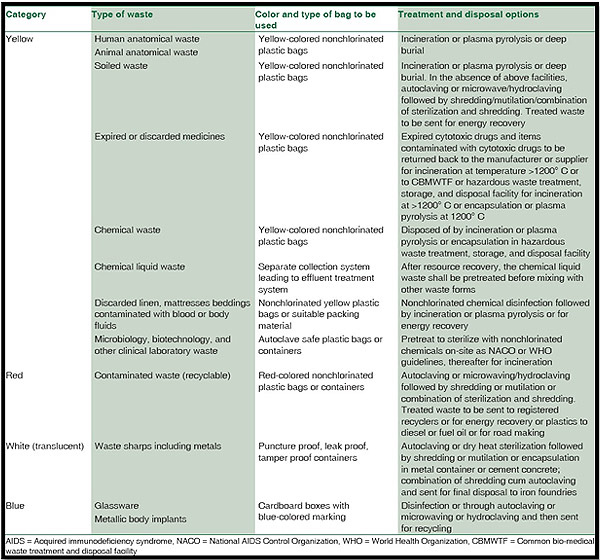Our Reclaim Waste Statements
Our Reclaim Waste Statements
Blog Article
Excitement About Reclaim Waste
Table of ContentsThe Best Guide To Reclaim Waste9 Simple Techniques For Reclaim WasteIndicators on Reclaim Waste You Should KnowThe Single Strategy To Use For Reclaim WasteThe 4-Minute Rule for Reclaim Waste
Residential sewer waste refers to the waste and items from a household septic tank. The correct administration and disposal of domestic sewage waste need liquid waste to be moved to a sewer treatment plant where the correct methods and devices are used to detoxify and dispose of waste.
Commercial waste commonly consists of prospective risks, such as combustible products or a mix of fluid and strong waste items, and needs an advanced and thorough disposal procedure. The disposal of industrial waste usually includes the filtration of waste prior to transport to make sure safe and appropriate disposal. Hazardous waste is created from results and drainage of commercial processes and manufacturing.
This sort of waste can not make use of the same sewage management transportation or processes as septic or industrial fluids. The industrial waste administration procedure requires the examination and testing of fluid waste before it undertakes the disposal procedure (liquid waste removal melbourne). Runoff waste is the liquid waste that comes from drainage and excess stormwater in very inhabited areas or cities
Overflow waste can cause contamination and flooding if not taken care of effectively. Guaranteeing correct waste monitoring can protect against catastrophes and decrease ecological injury.
The smart Trick of Reclaim Waste That Nobody is Talking About
Get in touch with PROS Solutions today to learn about our waste administration and disposal services and the correct methods to take care of the fluid waste you produce.
(https://pubhtml5.com/homepage/kwjac/)Do you understand what occurs to your water when you end, flush the toilet or drain pipes the cleaning maker? No? Well, it deserves recognizing. This so-called 'wastewater' is not only an essential resource but, after treatment, will certainly be launched to our land, rivers or the sea. Made use of water from commodes, showers, baths, kitchen sinks, laundries and commercial procedures is called wastewater.

water used to cool equipment or clean plant and tools). Stormwater, a type of wastewater, is overflow that streams from agricultural and metropolitan areas such as roofing systems, parks, yards, roads, paths and rain gutters into stormwater drains pipes, after rain. Stormwater streams neglected straight to regional creeks or rivers, eventually getting to the ocean.
The 6-Minute Rule for Reclaim Waste
In Queensland, a lot of wastewater is dealt with at sewer treatment plants. Wastewater is carried from domestic or commercial websites with a system of sewers and pump stations, called sewage reticulation, to a sewer treatment plant. City governments build, preserve and operate most sewage treatment plants. Operators are accredited under the Environmental Defense Act 1994 to release treated wastewater at an acceptable ecological criterion into rivers.
The Division of Natural Resources encourages city governments concerning handling, operating and maintaining sewage systems and treatment plants. In unsewered locations, city governments may call for householders to install private or home sewage treatment systems to treat domestic wastewater from bathrooms, kitchen areas, shower rooms and laundries. The Division of Natural Resources authorises using household systems when they are verified to be efficient.
The majority of stormwater receives no therapy. In some brand-new class, treatment of some stormwater to eliminate clutter, sand and crushed rock has begun utilizing gross toxin catches. Wastewater treatment happens in four phases: Removes solid issue. Larger solids, such as plastics and other objects incorrectly discharged to drains, are removed when wastewater is travelled through displays.
Uses little living organisms understands as micro-organisms to break down and eliminate continuing to be liquified wastes and fine bits. Micro-organisms and wastes are included in the sludge.
The Main Principles Of Reclaim Waste
Nutrient removal is not offered at all sewer therapy plants because it needs costly specialized tools. Clear fluid effluent created after treatment might still contain disease-causing micro-organisms - liquid waste removal.

Most wastewater moves right into the sewage system. Under the Act, neighborhood governments carry out authorizations and licences for eco pertinent tasks (ERAs) including wastewater launches that might have a local effect.
Examine This Report about Reclaim Waste
Otherwise, examples are considered lab evaluation. Typically lots of tests are needed to establish Check This Out the degrees of each of the various pollutants such as oils, heavy steels and chemicals in water. Tracking gives factual details regarding water quality and can validate that permit conditions are being fulfilled. The details obtained via surveillance gives the basis for making water high quality choices.
Report this page